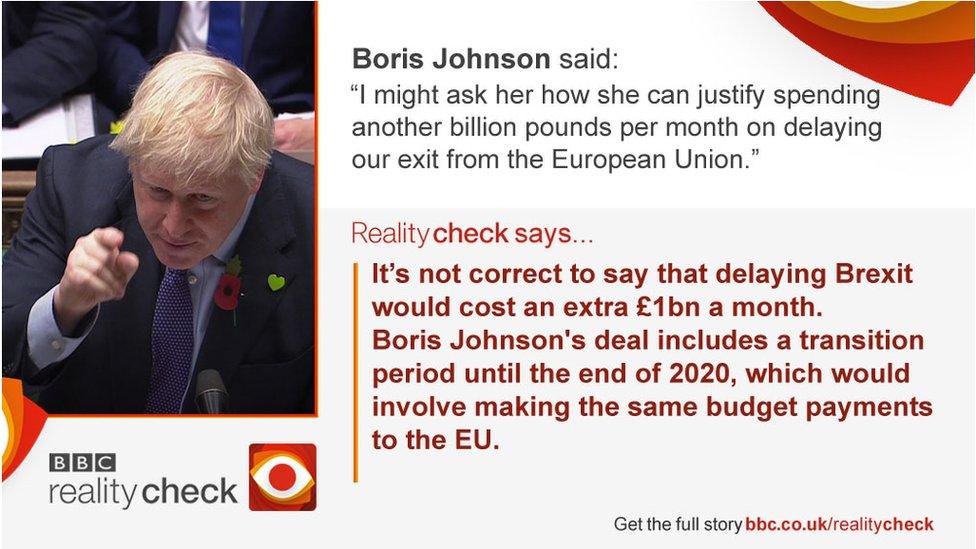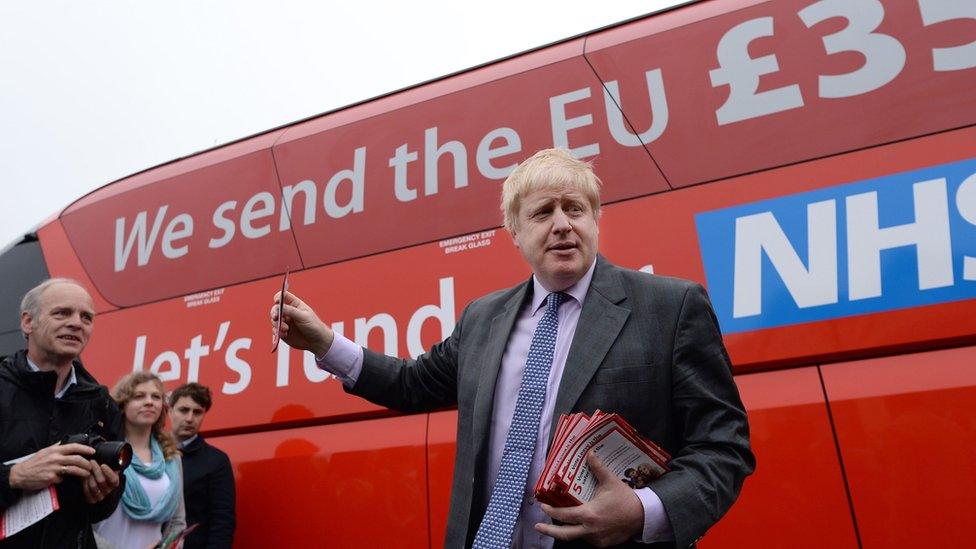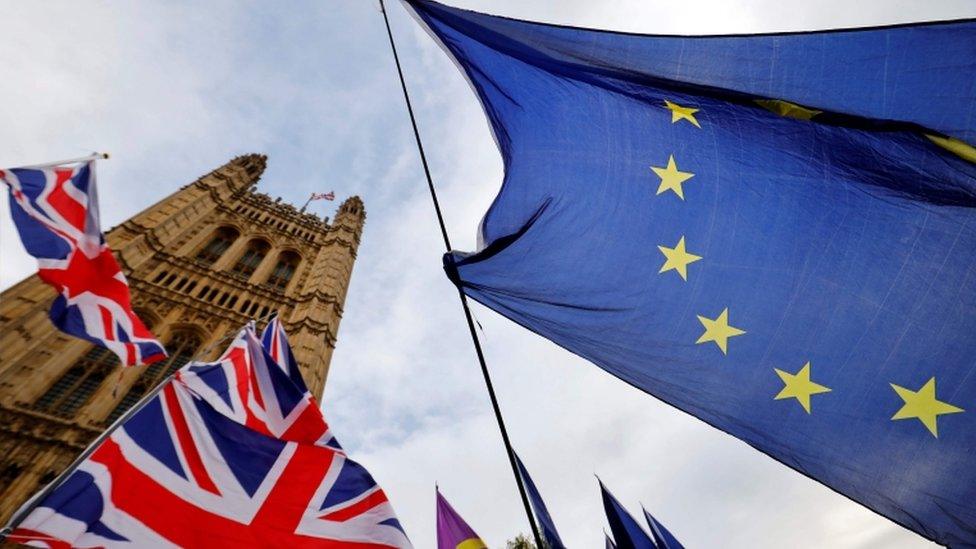Will delaying Brexit cost £1bn a month?
- Published

Boris Johnson has repeated his claim that delaying Brexit again rather than leaving on 31 October with the deal he has negotiated will cost the country another billion pounds per month in budget contributions to the EU.
That is not correct.
The prime minister's deal includes a transition period until the end of 2020, during which its payments to the EU won't change. So even if the UK had left with Mr Johnson's deal on 31 October it still would have been paying the same amount of money.
The transition, and the same budget payments, could be extended by one or two years. Either way, there will be no cost savings for some time.
It's also worth noting that the longer the UK remains part of the EU, paying into the budget, the lower the "divorce bill" or financial settlement will be when Brexit actually happens.
That's because budget payments until the end of 2020 are already part of the divorce bill calculations.
Only if the transition is extended into 2021 and beyond could the cost in budget contributions to the UK begin to rise. In that sense, the longer Brexit is delayed the more chance there is that will happen.
Mr Johnson might also argue that other factors, such as the continued uncertainty facing businesses, should be taken into account when calculating cost. But that's not what he is referring to when he makes his £1bn a month claim.

Side of the bus
It's also worth noting that £1bn a month is considerably less than the £350m a week that the Vote Leave campaign wrote on the side of their big red bus - which Mr Johnson campaigned in front of - during the 2016 referendum.
The prime minister has always insisted that figure was correct, but he is now using a lower one.
Even the merit of the £1bn a month figure is open to question, though.
Budget payments
In 2018 the UK paid £13.2bn into the EU budget.
But the Treasury then received £4.3bn back from the EU, for payments to farmers, development and other projects (money allocated by the EU and distributed by the UK government).
Those are payments that the government has promised to continue for a number of years after Brexit.
When you factor this in it brings the UK's net contribution to £8.9bn, or £744m a month.
Private sector
The EU also makes some payments directly to the private sector in the UK, to fund research for example.
These payments do not appear in the Treasury's accounts, but the Treasury estimated that in 2016 they were around £2.3bn, or £192m a month.



- Published30 October 2019
